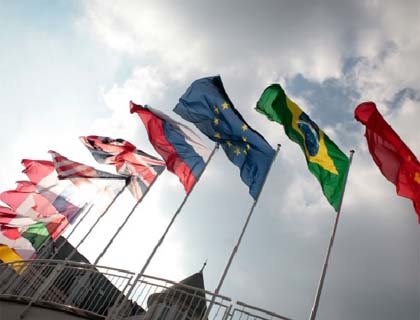BEIJING - The Group of Eight (G8) summit, which has been the bellwether on the international scene for years, seemed a little "reserved" this year.
The summit in the French resort of Deauville devoted much to the unrest in the Arab world and the Middle East peace process and deliberately less to the global economy as its members, most of which also find them in an economic predicament, are deeply divided over major economic issues.
Analysts and commentators say, with declining sway on the world stage, the G8 summit is now no match for the emerging G20 summit, which brings together both important industrialized and developing economies to discuss key issues concerning the global economy.
The G8 summit sends a signal that with the ever shifting international political and economic landscape and the rise of emerging economies, the world's eight powers can no longer dominate world affairs.
Then the question follows: who will lead the world?
In a speech at the British Parliament Wednesday, U.S. President Barack Obama said American and European influence remains as dominant as ever. While declaring "the time for our leadership is now," Obama admitted that the West needed to advance with time to cope with challenges in economic and security areas.
Similar to the G8 summit, the Anglo-American relationship, which has long been labeled as "special," seems to be on the decline.
Though Obama referred to the transatlantic alliance as "special and essential" on various occasions during his visit to Britain, British media commented that beneath the grandeur of his visit, there were signs of instability in bilateral ties.
One of the key factors behind the instability is feared to be America's lip service on the issue of NATO's military attacks against Libya.
And the two sides also differ widely on issues concerning Syria. Prime Minister David Cameron once said that Britain will no longer follow the United States blindly, and his remarks may set off ripples across the Atlantic Ocean.
Also out of place was Europeans' persistence in choosing a European as the new IMF chief. A host of emerging and developing countries begin to question the legitimacy of Europe's firm grip on the IMF leadership, arguing that the candidate should be picked on the basis of merits rather than places of birth. It is to be expected that the emerging markets will play a greater role and command a bigger say in the international financial institution even if another European assumes IMF leadership. (Xinhua)

